If you are a garden enthusiast just like I am, you would be wondering if filtered water is good for plants. Given the fact that the plants may be sensitive to the chemicals, it is quite important to check out the usability of the filtered water for the plants.
Quick Response
The filtered water is not only good for the human beings but it has also been known to be quite effective and good for the plants as well. It has been observed that the filtered water works great for the plants.
Is filter water good for plants?
The filtered water is good for plants because of the fact that the water contains the activated carbon. This can remove the impurities such as chlorine, lead, asbestos, and benzene from the water. These impurities, if not cleaned, can harm the plants and other beneficial organisms that the plants would need to grow.

In my personal experience, I had a few issues with the tap water for my plants. When I sent the water for a test, it was observed that the water contained a lot of contaminants that have been proven to be detrimental to the health of the plants. As per the study from Water Quality Association, distilled or reverse-osmosis filtered water is the best for watering house plants.
Effects of tap water on plants
Tap water contains chlorine, and this can be quite harmful to the plants. The chlorine can damage the leaves and turn them yellow. It can also damage and kill the microorganisms in the soil. The tap water may also contain a few other contaminants that may be harmful to the plants.
The bad effects of the tap water would include
- The chlorine in the tap water can harm the plants. It can prevent the plant from absorbing the nutrients
- It can also consist of calcium and magnesium, which will build up in the soil, making it difficult for the plant to absorb the nutrients from the soil
- High levels of fluorides in the tap water damage the roots of the plants.
Filtered Water vs Distilled Water vs Rainwater for Plants – Which is Better?
All three types of water viz Filtered water vs distilled water vs rainwater for plants work best for plants. But each of them comes with its own advantages and disadvantages.
Before we can understand the differences and find how the different types of water can help the plants grow better, we will analyze each type of the water and find how does each type of the water work best for the plants.
Filtered water

Filtered water is the water that has been passed through the water filtration system. The water is available after the complete removal of impurities such as sediment, chlorine, and heavy metals. The filtered water is one of the best options for the plants. Even when the filters may not be able to remove all the contaminants, it would be better than the tap water.
Filtered water is quite inexpensive and can be quite a great option for plants. The water still consists of the minerals that are needed for the plants. Make sure that you are using the best water filter for indoor plants. That way, you can ensure that your plants do not get contaminated water.
Distilled water

The distilled water is created by boiling the water and condensing the steam. This process will remove all the impurities from the water and thus makes the water safe for consumption. The distillation process removes the minerals and contaminants. However, the distilled water may harm the plants. It would also lack the beneficial minerals the plants need for growth
Distilled water can be expensive and can be used to a certain extent for watering your plants. However, you will need to use fertilizers for your plants as the distillation process removes all the minerals necessary for the plants. I did put to some test at my garden and found that the growth of the plants was somewhat restricted.
Rainwater

Rainwater is directly collected from the sky. This is generally free from contaminants and minerals. The water also contains the natural nutrients that can be beneficial for plants. However, the rainwater also may contain the impurities such as pollutants such as acid rain, which can harm plants. It may be necessary to collect the rain water and filter it.
It is also a good idea to collect the snow and melt it to get the fresh water. It would be advisable to collect it from a clean location.
In essence, the filtered water is the best option for plants. If you have a high-quality filter, you will definitely find it the best option that you would find very much decent.
The table here below should be a good option to find the details on the differences between the Filtered water vs distilled water vs rainwater for plants
| Type of Water | Source | Benefits | Potential Drawbacks |
| Filtered Water | Tap water that has been passed through a filtration system | Removes impurities such as sediment, chlorine, and heavy metals that can harm plants | Some filters may not remove all contaminants, and the quality of the water may vary depending on the source |
| Distilled Water | Water that has been boiled and condensed back into a liquid | Free of impurities and minerals that can harm plants | It lacks beneficial minerals that plants need to grow and may be more expensive than other types of water |
| Rainwater | Collected directly from the sky | Free of contaminants and contains natural nutrients beneficial for plants | It can contain pollutants such as acid rain if not collected properly, and the quality may vary depending on the environment and location |
Can I Use Tap Water For Plants When I Have a Water Softener?
Most of the time, it would be a bad idea to use tap water for plants when you have a water softener. The softened water may contain a very high amount of sodium. This is what the water gains from the salt in the water softener. This sort of high amount of salt may only be tolerated by some plants. That is precisely why it is not advisable to use softened water for watering the garden.
The sodium inside the water softener can interfere with the water balance in the soil. It also can cause the salt concentration in the plants. The sodium may kill plants by making them plants believe that they have taken up enough water. The plants in your garden may die of salt if you feed them on the water softener. As far as our own experiences go, me and my wife strictly avoid the use of softened water.
Is boiling water the same as distilled water for plants?
No. boiling the water is not the same as distilled water. The two processes involve the conversion of water into liquid and gaseous states, but the end products are different and have a huge degree of differences.
The first step in distilling the water is to boil it, but you need more than boiling itself to get the distilled water. The boiled water is not pure water, but the distilled water is pure water. The difference between the boiled water and distilled water lies in the difference between the pure and impure water.
The trace element or content in distilled water and boiled water is entirely different. That would mean you cannot use boiled water for watering your plants.
The major differences between boiled water and distilled water would include
| Type of Water | Boiled Water | Distilled Water |
| Method of Purification | Water is boiled to kill bacteria and other microorganisms | Water is boiled, and the steam is collected, then condensed back into a liquid to remove impurities |
| Purity | Boiling water kills bacteria and other microorganisms, but minerals and impurities remain in the water | Distillation removes all minerals and impurities from the water, resulting in pure H2O |
| Health | Boiling water can make it safer to drink by killing harmful bacteria and other microorganisms | Distilled water can be safe to drink, but some people argue that it may lack important minerals that the body needs |
| Use in Appliances | Boiling water can cause mineral buildup in appliances such as kettles and coffee makers | Distilled water can be used in appliances without worrying about mineral buildup |
| Cost | Boiling water is a relatively cheap and easy way to purify water | Distilled water can be more expensive than other types of water due to the cost of distillation equipment |
Boiling water kills the microorganisms that may be present in the water. It does not remove the impurities and minerals that may be harmful for the plants. The boiling of water may also increase the concentration of the minerals in the water at times. These minerals may be quite harmful for the plants.
Distilled water is the result of the steam distillation. This would remove the impurities, minerals, and other contaminants from the water. The distilled water is pure and does not contain dissolved minerals or chemicals. That would make it an ideal choice for watering the plants.
The Concluding Thoughts
Whether or not to use tap water for the plants is a subject of many discussions. However, tap water may contain a host of impurities, and that is why there may be better options for your garden. It is always advisable to use filtered water for watering your plant as it has been observed to be more beneficial.

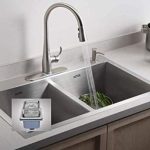
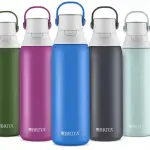
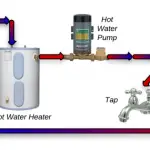
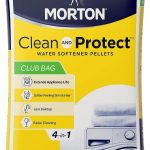
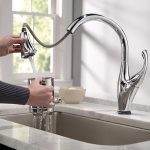
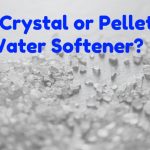




Add Comment